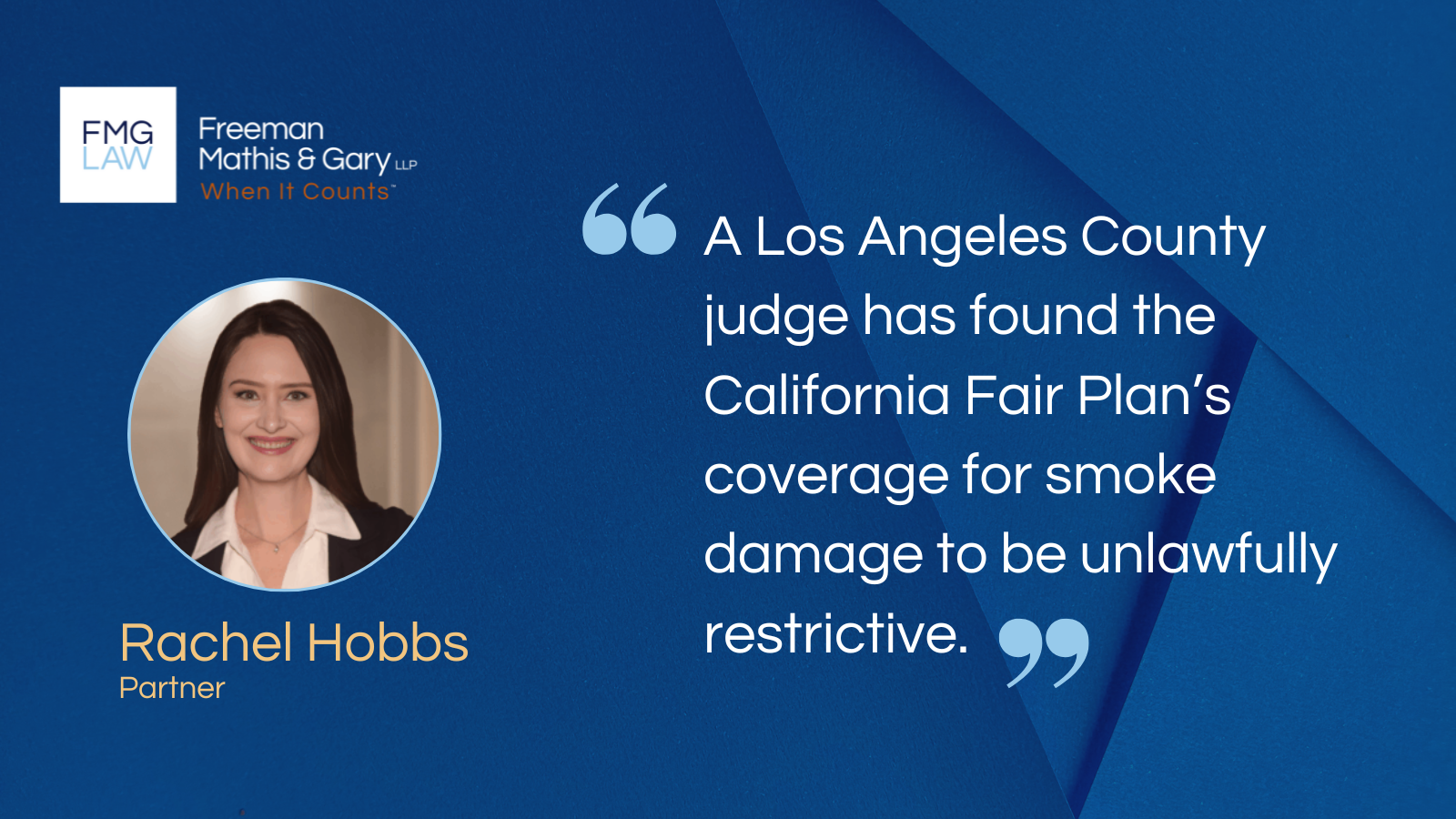BlogLine
Los Angeles court finds California Fair Plan Policy coverage for smoke damage illegal
7/7/25

By: Rachel E. Hobbs
A Los Angeles County judge has found the California Fair Plan’s coverage for smoke damage to be unlawfully restrictive. In Aliff v. California Fair Plan Association, the plaintiff alleged that the policy’s smoke damage coverage violated Insurance Code § 2071 and the California supreme court case of Another Planet v. Vigilant. The policy in question covered direct physical loss evidenced by “permanent physical changes.” It further defined smoke damage to include losses detectible by the unaided eye or nose of the “average person.” The policy excluded coverage for damage detectable by the insured’s “subjective senses” or by laboratory testing. The court held this language violated Insurance Code § 2071, which sets forth the minimum requirements for fire insurance. In so doing, it noted that the California Fair Plan stated in its renewal notices that the language would result in the denial of claims covered under prior language tracking § 2071. The judge also held that the requirement the loss be “permanent” ran counter to Another Planet, which held that “persistent” contamination was sufficient. The judge noted that both parties relied on Gharibian v. Wawanesa General, where the court held smoke damage which can be easily cleaned does not constitute direct physical loss. However, the court distinguished Gharibian on the grounds that the plaintiff’s own hygienist in that case found there was no physical damage. Moreover, the court stated, the issue before it was not whether there was direct physical loss but whether the defendant’s policy complied with the Insurance Code and Another Planet, which the court found it did not.
For any questions or further clarification, please contact Rachel E. Hobbs at rachel.hobbs@fmglaw.com or your local FMG attorney.
Information conveyed herein should not be construed as legal advice or represent any specific or binding policy or procedure of any organization. Information provided is for educational purposes only. These materials are written in a general format and not intended to be advice applicable to any specific circumstance. Legal opinions may vary when based on subtle factual distinctions. All rights reserved. No part of this presentation may be reproduced, published or posted without the written permission of Freeman Mathis & Gary, LLP.
Share
Save Print
